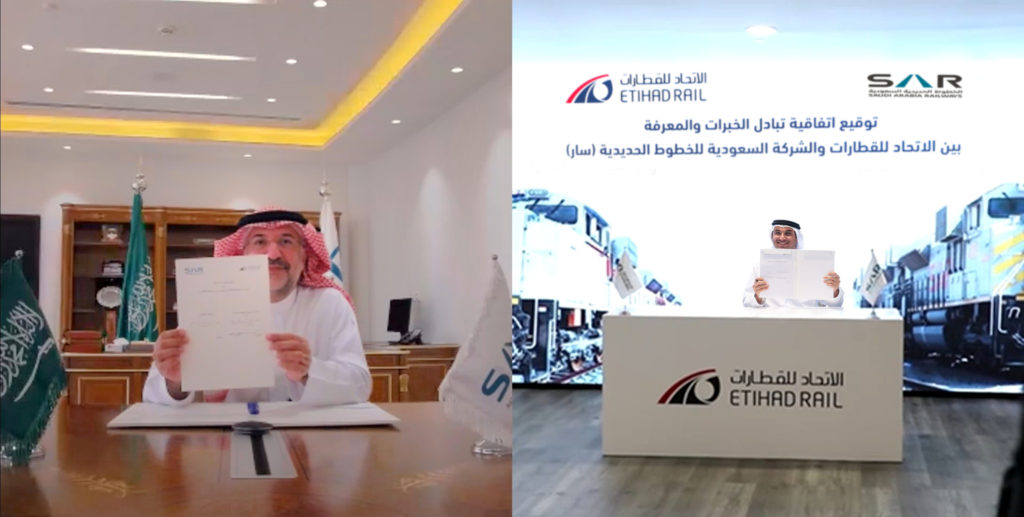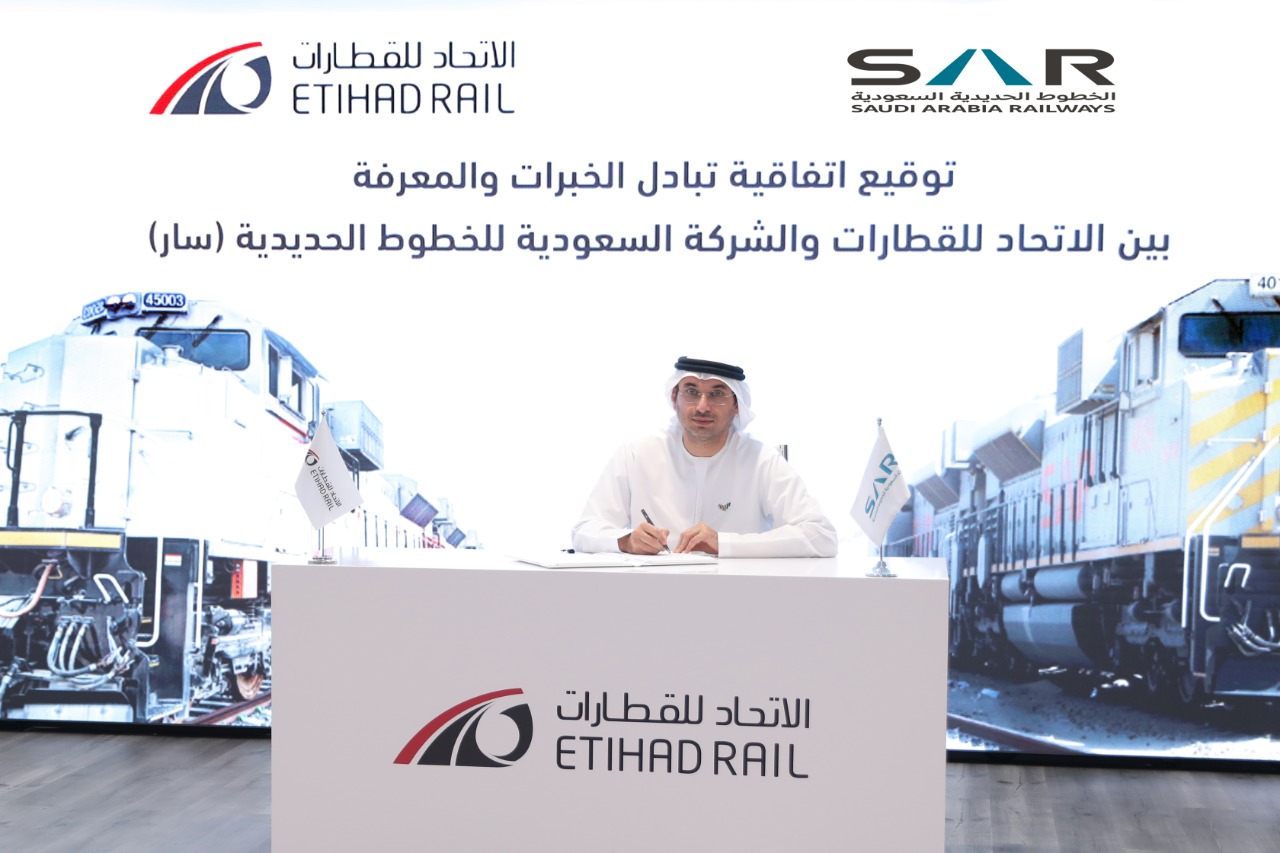Etihad Rail, the developer and operator of the UAE’s national railway network, announced today its partnership with the Saudi Railway Company (SAR), by signing a strategic agreement establishing a framework for the exchange of services, training, and knowledge transfer.
Shadi Malak, Chief Executive Officer of Etihad Rail, and Dr Bashar Al Malik, Chief Executive Officer of SAR, signed the strategic agreement during a virtual ceremony attended by officials from both entities. The agreement focuses on four key areas of cooperation including locomotives and wagons lease arrangements, spare parts purchase, special volunteer groups and shared services initiatives.
Shadi Malak, CEO of Etihad Rail, said: “This strategic agreement is of strategic importance, due to the close ties between the United Arab Emirates and the Kingdom of Saudi Arabia, under the wise and visionary leadership within both countries. Further expanding the close relationship between Etihad Rail and Saudi Railway Company (SAR) through continuous cooperation, which will shape the future of the rail transport and logistics sector across the GCC region.”
“Our agreement with the Saudi Railway Company is aligned to Etihad Rail’s strategic role in the development of the UAE’s logistics and mobility sector. We look to contribute to the ongoing comprehensive development process aimed at achieving the UAE’s economic vision and government strategies, while optimally using available resources and capabilities. Our expertise in rail operations, coupled with the strong presence of UAE talent across our company, will foster and enhance the transfer of knowledge with our colleagues in Saudi Arabia. Through this partnership, we look to enable our mutual development, further aligning to the requirements of this ambitious project.” added Shadi Malak.
Bashar Al Malik, CEO of the Saudi Railway Company, commented: “Our agreement comes following the strategic and fraternal relationship between the Kingdom of Saudi Arabia and the UAE. We share deep historical ties and a bold vision for the future, reinforced by our similar outlook on a range of different viewpoints. Such a partnership is nurtured by our nations’ continued cooperation, and our mutual vision for the integration of our transportation sectors. This is particularly pertinent for the rail sector, which offers a pivotal role in wider social and economic development.”
“Our partnership with Etihad Rail demonstrates the Saudi Railway Company’s integral role in the development of the Kingdom of Saudi Arabia, working to achieve the targets of Vision 2030 and provide a global logistic service for the Kingdom. It further indicates how we seek to provide safe and reliable transport solutions, as well launching shared procurement services. Leasing of trains and vehicles, and the provision of spare maintenance parts, contributes to further sectorial development opportunities. This partnership enhances the use of our national capabilities and expertise: characteristic of SAR’s wider ethos. Having rigorously implemented international standards, SAR has enabled new partnerships, providing training and services for local and regional transport companies.” Bashar Al Malik added.
The strategic agreement will also support identifying future initiatives, such as those in the field of technology and procurement, ensuring training curricula are up-to-date, optimal maintenance times, and other programs that enhance information exchange within the logistics and mobility sector.
In addition, the agreement facilitates the leasing of locomotives,the exchange of spare parts, as well as the training of engineers and students in operational processes and the further development of competencies in various technical fields.
Etihad Rail started construction of Stage Two of the UAE’s national railway network in early 2020. The historic project extends from Al Ghuwaifat on the borders of Saudi Arabia to the emirate of Fujairah, on the eastern coast. Upon completion, Stage Two will link the nation’s ports, manufacturing hubs, and urban centres and integrate with the GCC’s railway network.








